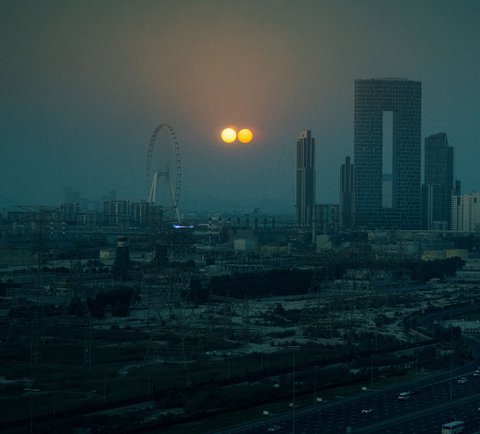Anyone landing at Terminal 1 of Charles de Gaulle airport in Paris today is confronted with the ruinous promises of the future made over the last 60 years. After an already polluting flight, you are ushered into a circular building whose façade and supporting structure are made of reinforced concrete – an ecological sin. The architects of the complex paid particular attention to the regulation of individual traffic, so that you can easily get into your private car and reach Paris via the motorway. A visit to the French capital does not begin on a green note.
The oil crisis of the 1970s made it clear that the promises of the technological avant-garde would be hard to keep. Fuel became so expensive that the first supersonic passenger plane, the Concorde, never paid for itself. Today, we have to assume that the world will look very different in 100 years’ time. It’s not just glaciers and islands that will disappear. Large parts of the world are in danger of becoming uninhabitable. The utopias of widespread mechanisation at the beginning of the 20th century seem to have come to an end: technological progress at the expense of resource exploitation is polluting the biosphere with waste. The promise of cheap and ubiquitous energy in the future has also been realised without the non-disposable waste of nuclear power. The desire for the future has been so great for decades and centuries that it has endangered its own future. A little distance from the idea that progress can be achieved for free would be good – without reacting in a reactionary way.


